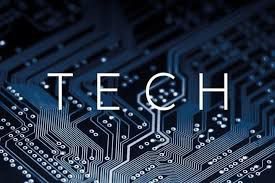EDUCATION
STEM Education Initiatives in Nigeria: Promoting Innovation and Growth
STEM Education Initiatives in Nigeria: Promoting Innovation and Growth

Science, Technology, Engineering, and Mathematics (STEM) education has become an essential foundation for economic development and technological advancement globally. In Nigeria, efforts to bolster STEM education are growing as stakeholders recognize its potential to drive innovation, job creation, and national progress. This article delves into the various programs, projects, and partnerships shaping the STEM education landscape in Nigeria.
The Importance of STEM Education in Nigeria
STEM education equips students with practical skills, analytical thinking, and problem-solving capabilities that are vital in addressing contemporary challenges. In Nigeria, where youth unemployment and underemployment remain pressing issues, STEM education offers a pathway to career readiness and entrepreneurship. By fostering creativity and technological literacy, STEM initiatives empower students to contribute meaningfully to sectors like agriculture, energy, healthcare, and technology.
Challenges Facing STEM Education in Nigeria
Despite its promise, STEM education in Nigeria faces obstacles such as inadequate funding, outdated curricula, and a lack of resources, particularly in rural schools. Many teachers lack the training needed to effectively teach STEM subjects, and gender disparity continues to limit the participation of girls in these fields. Addressing these issues requires collaborative efforts from the government, private sector, non-profits, and international organizations.
Government-Led Initiatives
The Nigerian government has introduced several policies and programs to strengthen STEM education across the country.
- National STEM Policy
The Federal Ministry of Education has prioritized STEM education in its national curriculum framework. The policy emphasizes practical learning, innovation, and the integration of technology into teaching methods. - National Robotics Education Program (NREP)
The NREP aims to introduce robotics and artificial intelligence to Nigerian students, fostering interest in emerging technologies. Through workshops, competitions, and training programs, students are encouraged to develop skills in coding, programming, and engineering. - Technical and Vocational Education and Training (TVET)
TVET programs emphasize hands-on learning and skill acquisition in technical fields. These initiatives equip students with industry-relevant skills, making them more employable in sectors like manufacturing, construction, and ICT.
Private Sector Contributions
The private sector plays a critical role in advancing STEM education in Nigeria through funding, mentorship, and resource provision.
- Andela Learning Community
Andela, a global technology company, offers coding bootcamps and training programs for young Nigerians interested in software development. These initiatives help bridge the gap between theoretical knowledge and industry demands. - Google’s STEM Programs
Google has launched several projects aimed at improving digital literacy and coding skills among Nigerian youth. The company’s coding workshops and developer training programs prepare participants for careers in technology. - MTN Foundation
The MTN Foundation supports STEM education by providing scholarships to students in engineering and ICT fields. The foundation also donates science equipment to schools and organizes STEM-related competitions.
Non-Profit and Community-Based Efforts
Non-governmental organizations (NGOs) and community groups have also been instrumental in promoting STEM education in Nigeria.
- The Visiola Foundation
This organization focuses on empowering girls through STEM education. By offering scholarships, mentorship programs, and hands-on workshops, the Visiola Foundation aims to close the gender gap in STEM fields. - STEMCafe
STEMCafe is a creative space where young Nigerians can experiment with science, technology, and engineering concepts. The platform uses fun, interactive methods to spark curiosity and inspire innovation among children and teenagers. - WISE Nigeria
Women in STEM Education (WISE) Nigeria is dedicated to increasing female participation in STEM. The organization organizes events, provides mentorship, and advocates for policies that support girls and women in science and technology careers.
International Partnerships
Collaboration with international organizations has significantly boosted STEM education in Nigeria.
- UNESCO STEM Project
The United Nations Educational, Scientific, and Cultural Organization (UNESCO) supports STEM education in Nigeria through teacher training programs, curriculum development, and capacity-building initiatives. - British Council Programs
The British Council collaborates with Nigerian schools to enhance STEM learning. Their Connecting Classrooms initiative, for instance, promotes the exchange of ideas and best practices between Nigerian and UK schools. - Microsoft’s YouthSpark Program
Microsoft’s YouthSpark initiative provides access to technology, coding workshops, and mentorship opportunities for young Nigerians. The program aims to prepare participants for careers in a digital economy.
Encouraging Female Participation in STEM
Gender disparity remains a challenge in STEM education, with cultural norms and stereotypes often discouraging girls from pursuing careers in these fields. Several initiatives are working to change this narrative.
- She Codes Africa: This organization offers coding bootcamps, hackathons, and mentorship programs tailored to young women.
- Girls Can Code Initiative: Launched by the Federal Ministry of Communications and Digital Economy, this program provides digital skills training for girls across Nigeria.
The Role of Technology in STEM Education
Technology is a driving force behind the transformation of STEM education in Nigeria. Online learning platforms, virtual labs, and coding apps have made STEM subjects more accessible, especially for students in underserved areas. Programs like TETFund’s e-learning projects aim to enhance digital learning infrastructure in schools.
Success Stories and Impact
Several STEM initiatives in Nigeria have yielded impressive results. Students trained in robotics and coding programs have gone on to represent the country in international competitions. Others have developed innovative solutions to local challenges, such as renewable energy devices and healthcare applications.
The Way Forward
To sustain and expand the impact of STEM education in Nigeria, stakeholders must continue to address existing challenges. This includes increasing funding, updating curricula, and fostering public-private partnerships. Efforts to train and motivate teachers, as well as initiatives that promote inclusivity, are equally essential.
ALSO READ: NGOs Supporting Education in Nigeria
Discover more from 9jaPolyTv
Subscribe to get the latest posts sent to your email.

 EDUCATION6 hours ago
EDUCATION6 hours ago4 Essential Nutrients That Boost Brain Development and Cognitive Health

 EDUCATION6 hours ago
EDUCATION6 hours agoFree Online Platforms to Learn Tech Skills

 NEWS6 hours ago
NEWS6 hours agoFCCPC regulations: Don’t offer loan if borrower cannot repay – Kalu Aja to operators

 EDUCATION6 hours ago
EDUCATION6 hours agoSokoto gov rewards best graduating student with 2026 Hajj sponsorship

 EDUCATION6 hours ago
EDUCATION6 hours agoFrom Primary School Teacher to First-Class Graduate: The Inspiring Journey of Oluwafemi Sobowale






















